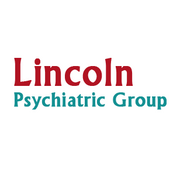
A mood disorder is a class of mental health conditions that psychologists and other practitioners use to diagnose various disorders that affect a person's emotional state. Professional care starts with identifying specific symptoms an individual is experiencing to implement the appropriate treatment options. The following guide explores the basics to provide a general understanding of this condition so that you can recognize the symptoms in yourself or others.
Basic Categories

Depression related to a medical illness or induced by medication or substance use are two common types of mood disorders. Seasonal affective disorder (SAD) is typically depression connected to daylight saving time changes, while premenstrual dysphoric disorder typically emerges before a woman's cycle and ends when menses start.
Another common category is cyclothymic disorder, which causes milder emotional swings than those seen with bipolar disorders. Other categories include persistent depressive disorder, which is also known as dysthymia and is diagnosed as long-term depression. Children may also experience disruptive mood dysregulation disorder that causes chronic mood changes that fall outside those typically associated with their age frame.
Symptoms
The symptoms will vary with each person and their age. However, some common ones are ongoing sadness, anxiety, feelings of helplessness, and loss of interest in everyday activities. Psychologists and other practitioners have also seen patients who have feelings of inadequacy, guilt, aggression, irritability, and thoughts of suicide.
Physical symptoms may include weight loss or gain, headaches, digestion problems, and exhaustion. Individuals with mood disorders might also have trouble sleeping, a loss of appetite, less interest in intimate relationships, and difficulty concentrating on tasks.
Treatment Options
Because each individual's mood disorder will vary and may overlap with others, the treatment options will also vary. For some, antidepressants and mood-stabilizing medicines are often prescribed to treat different levels of depression. Psychotherapy is another option for helping redirect a person's negative views and their everyday surroundings by identifying stressors, triggers, and positive ways to address and respond to them.
Dietary changes, exercise, and, when applicable, substance abuse rehabilitation are other mood disorder treatment plans. Family therapy and different psychological-drive therapies can provide additional relief and stronger coping mechanisms.
If you suspect that you or a loved one has a mood disorder, turn to Lincoln Psychiatric Group in Nebraska. They've served the community since 1939 and specialize in comprehensive assessments so that the proper treatment solutions are presented. Clients meet with a team of professional, licensed, and compassionate doctors to review their complete medical histories. The discussion continues with the individual expressing why they are reaching out for help so that their issues can be thoroughly assessed to create a treatment plan. If you or a loved one is experiencing frequent and lingering emotional upset, call (402) 476-7557 to schedule an appointment. Visit the website for the complete list of services.
About the Business
Have a question? Ask the experts!
Send your question

